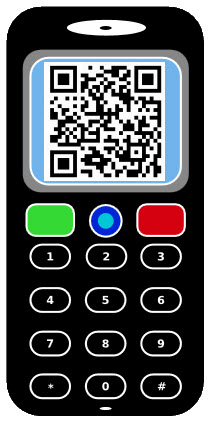 ScanLife releases new study concerning QR codes
ScanLife releases new study concerning QR codes
ScanLife, a mobile advertising firm specializing in QR codes, has released a new study concerning the scanning of QR codes and how they can be used effectively by brands. QR codes are already popular marketing tools and have been so for some time. Despite this, however, many companies are still uncertain on how to use them effectively. ScanLife has long been an advocate for QR codes, claiming that companies can see major gains if they were to use the codes in an effective manner. The firm has released its new study in the hopes of spreading awareness on the capabilities of QR codes.
Study draws information from more than 200 codes and thousands of scans
For this study, ScanLife made use of more than 200 QR codes, which generated thousands of scans each. These scans were tracked by the company’s Mobile Engagement Platform, which provided ScanLife with valuable analytic data concerning the use of its QR codes. Each of the codes were linked to mobile websites that were created by advertisers using the ScanLife platform, providing context sensitive content for consumers rather than sending them to random places on the Internet.
QR codes highly effective when targeting specific demographics
According to the study, the majority of people who scanned the QR codes are interested in particular products and services. ScanLife notes that this makes QR codes very effective when used to target a specific demographic, but less effective for a broader marketing approach. The study shows that 62% of all scans translated into further engagement. The study suggests that consumers presented with content relevant to their interests were much more likely to get engaged in marketing campaigns.
Codes still useful even when compared to interactive technologies
QR codes are often used as an all-encompassing mobile marketing tool. The codes have shown their value to marketers by proving that they can be effective in engaging tech-savvy consumers, but have begun losing popularity to more interactive technologies, such as NFC and augmented reality. ScanLife notes that QR codes can still be highly effective if marketers use them to target a very specific audience.

 n testing new ways to allow consumers to make online transactions securely. The financial institution envisions a platform that will protect consumers from the risks they face in the online world while also providing them convenient service. The company’s PayPass platform has become somewhat popular in mobile commerce, but MasterCard is looking to expand the capabilities of this platform and has set its sights on QR Codes. MasterCard has teamed with ING Group, a Dutch bank, to launch a trial project for its new initiative in the Netherlands.
n testing new ways to allow consumers to make online transactions securely. The financial institution envisions a platform that will protect consumers from the risks they face in the online world while also providing them convenient service. The company’s PayPass platform has become somewhat popular in mobile commerce, but MasterCard is looking to expand the capabilities of this platform and has set its sights on QR Codes. MasterCard has teamed with ING Group, a Dutch bank, to launch a trial project for its new initiative in the Netherlands.